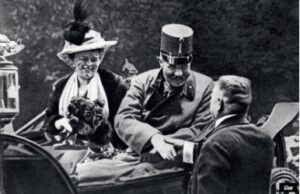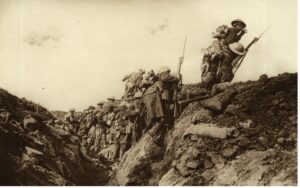Our Newest Member
Joining us this January is Stephanie Quintana, who first learned about our institute last August when she became friends with IHS members Liz Thacker-Estrada and Rose Marie Cleese while they were all cruising up Alaska’s Inside Passage. A native Californian, she is descended from emigrants who traveled the Oregon Trail, circa 1860. With a BS in biological sciences and a teaching credential from UC Davis, she taught science and the humanities at high schools from Sacramento to Utah during her 30-year career. Her current book project focuses on the history of the San Joaquin Valley as it pertains to her ancestors who were involved in the colorful world of gambling from 1890 to 1950. She is particularly excited about joining the Writers’ Group to give her direction in her research and writing efforts.
...and farewell to a former member.California recently lost one its most respected and preeminent historians, Gary Kurutz (1948–2025). When he was in his mid-30s, he was a member of the Institute for Historical Study. At that age, he was already principal librarian in the Special Collections of the State Library in Sacramento. He had previously served as bibliographer of Western Americana at the Huntington Library in Pasadena, as well as head librarian of the Sutro Library in San Francisco and library director for the California Historical Society, also in San Francisco.
As curator of the State Library Special Collections, Kurutz expanded the depth and diversity of the library to such an extent that his name is ubiquitous in the acknowledgements sections of books on the American West, from the most obscure to notable ones by historians such as Kevin Starr.
Kurutz was the author of numerous award-winning books and articles, including definitive bibliographies on the California and Alaska Gold Rushes. He also taught a course on books of the American West for the California Rare Book School and was an active member of the Book Club of California.
He retired in 2017 as principal librarian emeritus of Special Collections of the California State Library, and a year later he retired as the executive director of the California State Library Foundation, where he had served for 20 years. He was inducted into the California Library Hall of Fame and was the recipient of the prestigious Hubert Howe Bancroft Award and the Book Club of California’s Oscar Lewis Award for outstanding contributions in the field of California History.
—Peter Meyerhof
In other member (author!) news. . .
This fall,
Dot Brovarney’s book, Mendocino Refuge, earned three first-place awards in the International Firebird Award competition. Judges recognized it for Western non-fiction writing and for both its cover and interior designs. In December, she made a couple of appearances in Sonoma County with, hopefully, more to come: first, in person at the Sea Ranch Lodge Book Faire, and second, in print courtesy of poet and editor Terry Ehret at the Sonoma County Literary Update. Dot’s December interview with Mendocino Voice editor Lin Due resulted in an article about her book in Bay City News and SFGATE, as well as locally. For more about Mendocino Refuge and how to obtain a copy, go to
www.mendocinorefuge.com.
Bonnie Portnoy is urging members working on book projects to “keep the faith!” In her latest update on the 2024 publication of her lavishly illustrated book about her maternal grandfather,
The Man Beneath the Paint: California Impressionist Tilden Dakin, Portnoy is happy to report that sales are still going well. “After two decades of researching, writing, and finding a publisher, I’ve been experiencing a whirlwind of marketing, speaking engagements, and book signings. My publisher, Jack Bacon & Company, creates beautiful books under the umbrella of the Nevada Museum of Art. The publication is a hybrid; thus, I contributed to the design and printing costs. And because my publisher has no formal connection to book distributors, I’ve become a book schlepper! Most local indie bookstores have embraced my book, requested regular book signings, and re-order regularly. This holiday season, I had so much fun at personal appearances and met so many engaged buyers who have been fascinated by my grandfather’s art and adventurous life. I reflect on and congratulate our institute members who have successfully found a pathway to publication, whether self-publishing or the traditional publisher route. It’s a challenge! Alternatively, I know there currently are members immersed in writingand facing the task of finding a publisher. Persevere and it will happen!” Portnoy’s book, which was recently reviewed in the Jan–June 2026 issue of the San Francisco Historical Society’s
Panorama newsletter, is available online through the Nevada Museum of Art, as well as via a direct link on
Portnoy’s website,
.
Speaking of the San Francisco Historical Society, our number-crunching member,
Oliver Pollak, did some research into the society’s prestigious journal,
The Argonaut, and discovered that more than 20 former and present members have contributed some 47 articles to the journal since former IHS member, the late Charles Fracchia, began publishing it in 1990. For more detailed data (names/numbers of articles), contact Oliver.
Members: Please submit news of your history-related publications, lectures, awards, research finds, etc. to info@instituteforhistoricalstudy.org.



